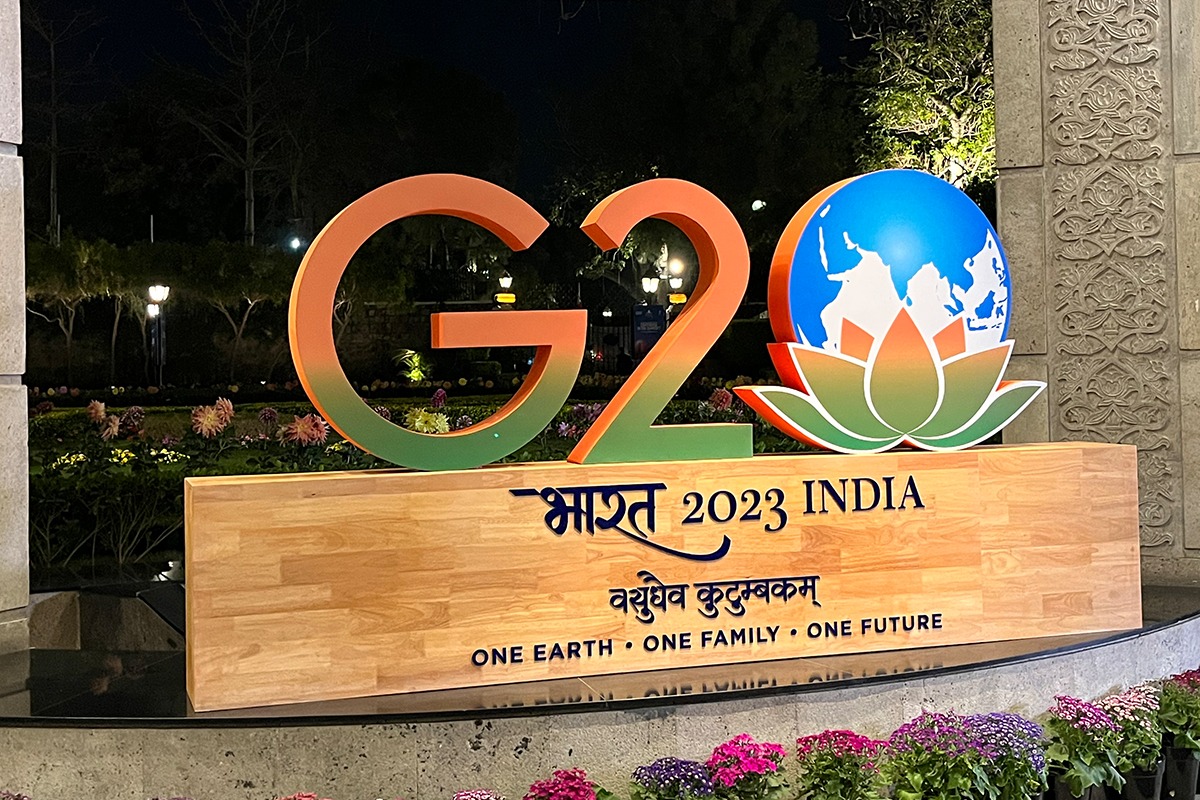India assumed chairmanship of the G20 during the most monumental moment in International Relations since the end of the Old Cold War. A New Cold War is now raging between the US-led West’s Golden Billion and the Sino-Russo Entente over the direction of the global systemic transition, which the first wants to redirect back to unipolarity while the second wants to accelerate it towards multipolarity. The latest phase of the Ukrainian Conflict can thus be conceptualised as a proxy war between those two.
Amidst that particular struggle and the broader trends taking place across the world nowadays, India and other Global South states are doing their best to remain neutral. On the one hand, they’re aligned with the Russo-Sino Entente’s multipolar vision, but on the other, they also have close trade ties with the Golden Billion and thus don’t want to be perceived by that bloc as an enemy. This explains why they’re straddling the two without committing to taking either side.
Such a balancing act is admittedly very difficult to pull off, and not every country has been as successful at it as India has been. Nevertheless, even though some Global South states were pressured by the Golden Billion into condemning Russia at the UN, they still refused to sanction it. That speaks volumes about the modern-day limitations of US influence, which is unable to coerce developing countries into unilaterally conceding on their objective national interests in retaining trade ties with Moscow.
This context set the stage for the last two large-scale events that India hosted as part of its G20 chairmanship, which were the meetings between that group’s Finance and Foreign Ministers. A joint statement couldn’t be agreed upon since the Sino-Russia Entente rejected the inclusion of two paragraphs from last November’s Bali Declaration that referenced the Ukrainian Conflict. That outcome, however, shouldn’t be interpreted as reflecting negatively on India.
Rather, India’s chairmanship of the G20 has been exemplary and not a single participant has criticised it. In fact, Russian Foreign Minister Sergey Lavrov even apologised to India for the West’s behaviour during the latest event, which he said was improper and an attempt to deflect from their own economic failures. Everyone knows that India has done its utmost to balance between the Golden Billion, the Sino-Russo Entente, and the Global South that it aspires to lead.
Regarding the last-mentioned point, observers should remember that India virtually hosted the first-ever Voice Of Global South Summit in January, during which time dozens of participants across the developing world brainstormed the agenda for India’s G20 chairmanship this year. They agreed that it would prioritise their most urgent needs regarding the debt, food, and fuel crises, all of which had worsened as a result of the past year’s events, particularly the West’s anti-Russian sanctions.
Developing countries have looked to India for leadership not just because of its serendipitous chairmanship of the G20 during this monumental moment in International Relations, but also because it’s the largest Global South state. Not only that, but India’s pragmatic policy of principled neutrality towards the Ukrainian Conflict and the New Cold War more broadly has been immensely successful, which inspires comparatively medium- and smaller-sized states to follow its lead.
Not all of them have been able to do so as masterfully as India, but they still see its approach as a model to emulate, precisely because nobody else has been able to balance the Golden Billion and the Sino-Russo Entente as well as it has. India is aware of its moral responsibility to the Global South stemming from its status as the largest such state, and its policymakers recognise that this category of countries is looking to it for leadership during these tough times, hence why they hosted January’s summit.
It’s through no fault of India’s own that the Golden Billion and the Sino-Russo Entente couldn’t agree on the last two G20 events’ joint statement, which was to be expected considering the contemporary New Cold War context. That said, if a Western country or a comparatively less sovereign Global South one was hosting those meetings instead of India, the atmosphere might have been so hostile for Russia and China that their representatives could have stormed out of the first event and boycotted all others.
Some observers might have difficulty appreciating everything that India did behind the scenes to prevent those two countries’ participants from feeling uncomfortable and countenancing that course of action in response to the Golden Billion’s hostility, seeing as how that scenario ultimately didn’t unfold. They’re unconsciously taking it for granted that the G20 is still gathering despite the unprecedented tensions across the world, but this outcome was always far from guaranteed.
It’s purely through India’s graciousness as this year’s host that this platform hasn’t collapsed, which speaks to the world-class professionalism of its diplomats for keeping everything in order. The dissolution of the G20, whether de facto or de jure, due to the New Cold War would have deprived the Global South of an opportunity for India to promote its interests on the world stage. For that reason, the vast majority of the world deeply appreciates India’s exemplary chairmanship of this global body.
Andrew Korybko is an American Moscow-based political analyst specializing in the relationship between the US strategy in Afro-Eurasia, China’s One Belt One Road global vision of New Silk Road connectivity and Hybrid Warfare

